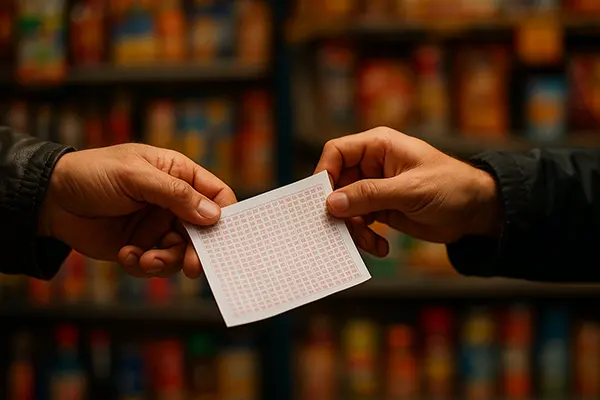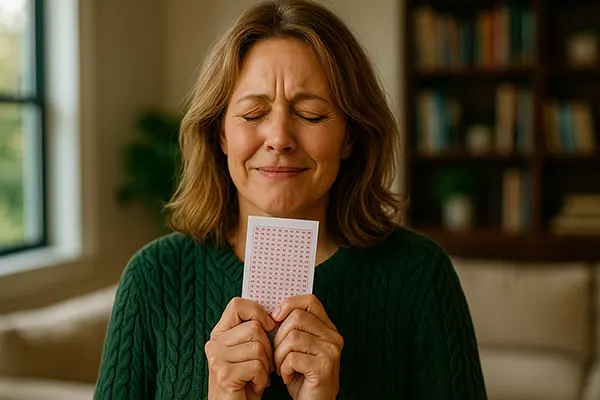
Black Market for Winning Lottery Tickets: How and Why They Are Sold After the Draw
The sale of lottery tickets after the draw may seem absurd at first glance, yet in recent years this obscure grey zone has turned into a thriving underground market. Despite the growing security of state lotteries and digital verification systems, cases involving the resale of already-drawn winning tickets continue to emerge. This article explores the mechanics, purpose, and implications of such transactions in the context of the current lottery landscape in 2025.
What Is the Black Market for Lottery Tickets?
The black market for lottery tickets involves the sale or transfer of already validated or non-validated winning tickets after the official draw. These transactions are usually informal, unregulated, and often illegal, depending on jurisdiction. The demand for such tickets primarily stems from individuals or groups attempting to exploit lottery winnings for financial manipulation.
In most cases, winning tickets sold post-draw are low- to mid-tier prize tickets. These are easier to trade without triggering alarms within state lottery agencies. High-value tickets attract more scrutiny and mandatory ID verification, making their underground trade riskier and less common.
In 2025, the black market has moved increasingly into encrypted messaging platforms and private social media channels. Sellers often advertise vague “help with claims” services, disguising the true nature of their offerings. Buyers, meanwhile, include both individuals with specific agendas and criminal groups aiming to legalise money from dubious sources.
Who Buys Winning Lottery Tickets and Why?
The main buyers of winning tickets include those seeking to launder illicit funds. By purchasing a winning ticket and claiming the prize as their own, they gain a seemingly legitimate explanation for the sudden inflow of money. This method, although risky, has been used for decades by organised crime networks worldwide.
Another category involves individuals attempting to resolve tax or debt issues. Declaring a one-time lottery win provides a way to justify money that might otherwise raise questions during audits. In some countries, lottery winnings are tax-free, making them particularly attractive for such schemes.
Additionally, undocumented individuals or those with poor credit histories may also participate in these purchases. They use lottery wins as a shortcut to access banking services or credit lines, manipulating financial institutions into granting privileges typically unavailable to them.
Legal and Financial Consequences of Ticket Resale
In most jurisdictions, reselling a lottery ticket, especially after the draw, violates gambling laws and can result in severe penalties. Authorities view this as a form of fraud or money laundering, and punishments may include fines, imprisonment, or both.
From a financial perspective, those caught in the act not only lose the money paid for the ticket but may also face asset seizure and court-ordered repayments. Law enforcement in 2025 is increasingly leveraging AI-based transaction monitoring systems to detect unusual financial behaviour linked to such schemes.
Moreover, even innocent parties who unknowingly purchase “claimed” tickets risk becoming entangled in legal battles. Lottery commissions have tightened verification processes, including biometric checks and digital ownership registration at the time of purchase. These changes make the act of reselling significantly more traceable and legally risky.
Recent High-Profile Cases
In early 2025, a man in Germany was prosecuted for purchasing over €50,000 worth of winning scratchcards to conceal money obtained from illegal cryptocurrency trading. His case led to a nationwide crackdown on second-hand lottery ticket sales.
Another case in the UK involved a network selling partially scratched National Lottery tickets through Telegram. Customers would pay a percentage of the winnings and claim the money directly from smaller outlets not requiring ID verification. Authorities shut down the operation after tracking anonymised transactions back to the ringleader’s account.
These examples highlight the continuing relevance and danger of the black market for winning tickets, showing how it persists despite increasing digital oversight and compliance frameworks.

How Authorities Are Combating the Black Market
Governments and lottery operators are taking active steps to curb the trade of post-draw tickets. These include the integration of blockchain-based ticket ownership, where every ticket is registered to a specific individual at the time of purchase and cannot be transferred post-draw.
Additionally, modern lottery apps now require identity verification before claiming even small winnings. These measures are backed by updated legislation in many European countries and parts of Asia, explicitly outlawing the resale of tickets under criminal codes.
Cross-border cooperation is also improving. Europol, Interpol, and financial watchdogs are now coordinating efforts to identify international money-laundering networks using lottery schemes. Data-sharing protocols have made it easier to detect irregular win-claim patterns and launch investigations rapidly.
Challenges That Still Remain
Despite the advancements, enforcement remains uneven. Smaller convenience stores or rural lottery outlets often lack sophisticated verification tools, making them a weak link in the control chain. Fraudsters exploit these locations to claim winnings under false identities.
Moreover, the lack of standardisation across jurisdictions allows criminals to exploit loopholes. For instance, while one country may have stringent rules, a neighbouring one might not even require ID for certain prize tiers. This inconsistency allows black market operators to move their activities across borders with relative ease.
Finally, awareness among the general public remains low. Many people are unaware of the legal risks tied to buying or reselling a ticket. Public education campaigns remain crucial to curb demand and deter casual participation in these activities.
